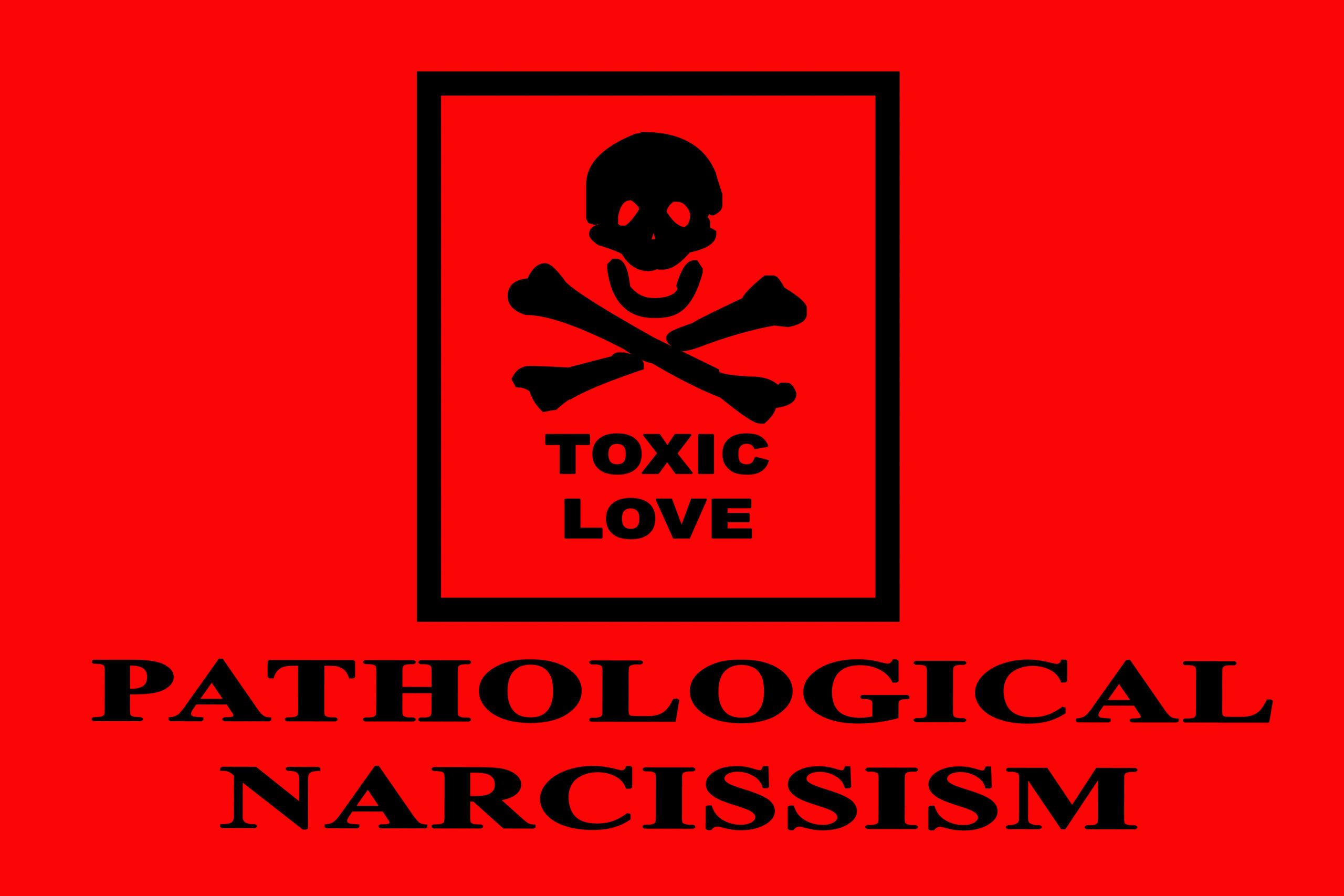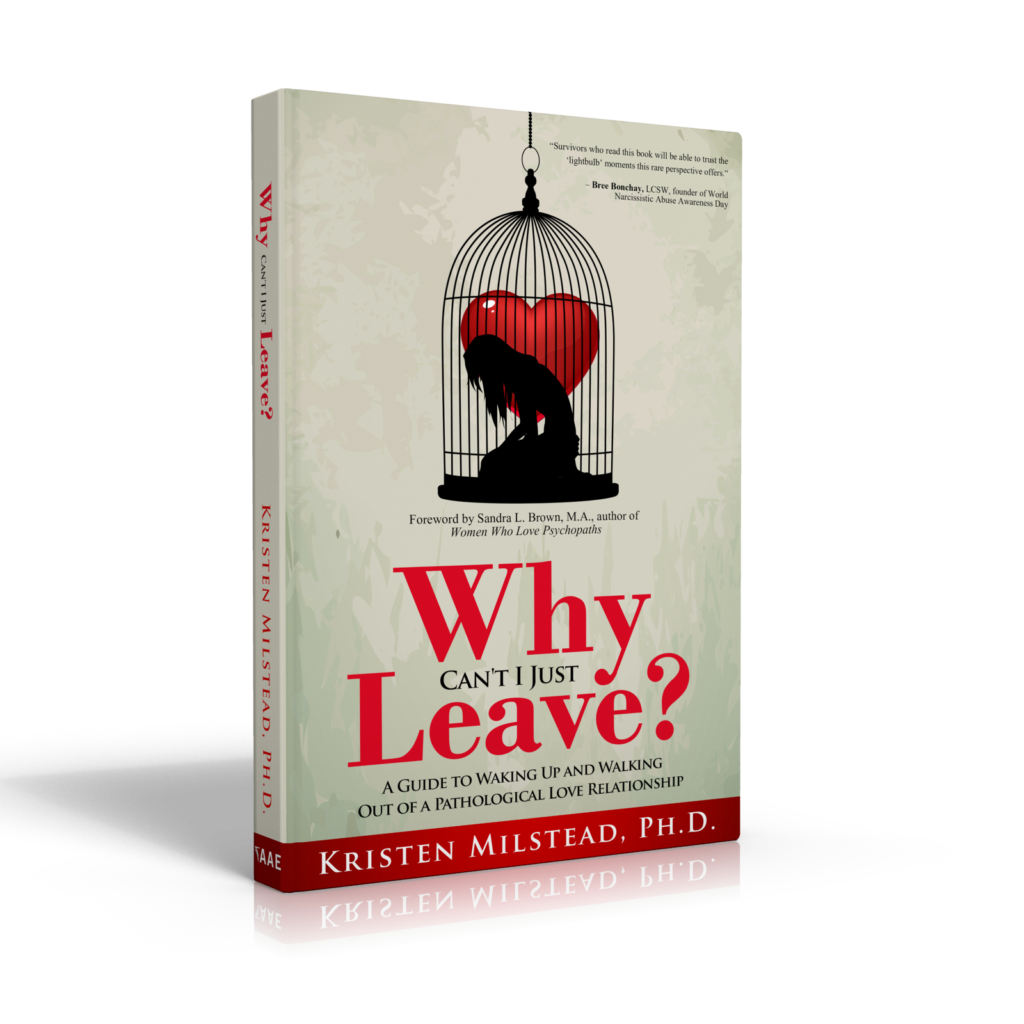“You don’t own my body. You don’t own me.”
When bachelorette Hannah Brown said those words to Luke Parker on the ABC series The Bachelorette this season, we knew things were flying off the rails. But it was what he said in response that warned us this wasn’t just the usual reality show drama–the relationship was heading into dangerous territory.
In the episode, Hannah had recently been on a date with one of the other men on the show in Riga, Latvia, during which the two of them had gone bungee jumping naked. When Luke heard about the date, he couldn’t contain his jealousy and pulled her aside.
He called her actions a “slap in the face,” and said, “Your body is a temple and I’m just thinking of you holding him bare-skinned and I’m just thinking in my mind, it really pissed me off and it really frustrated me.” He went on to talk about what had happened as “a mistake” and insisting that she’d “slipped up” and he would forgive her for it
But then, when she balked at the judgment and control he was exhibiting, he backtracked, saying that she misunderstood him, that he wasn’t “judging her character.” He became increasingly calm, apologetic and loving in an attempt to soothe her, and meanwhile she became confused about what had just taken place.
Watch here: https://abc.go.com/shows/the-bachelorette/video/vdka10699752
It’s called gaslighting, a key component of narcissistic abuse.
But this wasn’t the only sign of narcissistic abuse Luke has exhibited this season.
What is Narcissistic Abuse?
Bree Bonchay, a trauma therapists who specializes in helping people recover from toxic relationships, estimates that narcissistic abuse affects over 158 million people in the United States alone (Bonchay, 2018).
But what is it exactly?
Narcissistic abuse is a type of emotional abuse characterized by bombarding the victim with three forms of abusive behavior until it changes him or her psychologically and allows the abuser to be in control–often without the victim realizing it (“Narcissistic Abuse is a Dangerous Cocktail of Three Types of Emotional Abuse”).
The three forms of abusive behavior include deception, authority/domination, and cognitive manipulation.
The abuser deceives the victim by hiding his or her true self and intentions behind a barrage of says all the right things to get the victim to fall in love, grooming him or her and using a method called “lovebombing” to increase vulnerability and trust.
The abuser also tries to dominate the victim by presenting himself or herself as all-knowing or powerful or resourceful in significant ways that the victim is not. The abuser may exhibit this authority very slowly but over time, the effect is that the victim becomes isolated, feels inferior, and becomes dependent on the abuser.
Finally, the abuser uses cognitive manipulation to convince the victim that no abuse is taking place, or that the abuser is the one being harmed by the victim’s actions. For example, if the victim stands up for himself or herself and refuses to be dominated, the abuser uses manipulative psychological and verbal tactics to convince the victim that he or she is the real bully or that any conflict in the relationship is the victim’s fault.
Narcissistic abusers tends to follow a four-stage cycle with partners in relationships of idealize-devalue-discard-hoover. The narcissistic abuse dictionary states:
“Considered the cycle of abuse in narcissistic relationships, in the idealization at the beginning of the relationship, the narcissist puts his or her partner on a pedestal and showers them with excessive praise and attention. At some point, the narcissist will begin to see his or her partner as flawed or even grow bored and the devaluation begins. Many tactics characterize this phase, such as verbal abuse, withholding, humiliation, and smearing. Finally, when the narcissist no longer sees any value in the partner, perhaps if the partner has reacted in a way that the narcissist perceives negatively, such as demanding respect, the narcissist may discard the partner. The cycle often repeats many times before the relationship ends.”
The cycle repeats itself because after a discard, narcissists hoover partners back into entanglements with them using a variety of methods.
Narcissistic abuse is a form of romantic con artistry designed to confuse and exploit. The victim loses any sense of objective reality, especially if the abuser is effective at isolating the victim from outside support, and the abuser can completely control the victim using these three methods effectively.
Narcissistic Abuse on The Bachelorette
Sometimes, we read or hear about a case of what we could categorize as narcissistic abuse in a news story or a documentary, such as Dirty John: The Dirty Truth. This season of The Bachelorette has given us a rare opportunity to observe narcissistic abuse unfolding over the course of a relationship, because it is broadcast weekly.
It provides a unique learning opportunity by demonstrating some of the key tactics of narcissistic abusers in a mainstream, popular series. Here are some of the primary features on a relationship characterized by this type of a abuse as observed in the series this season.
If we follow the trajectory of what he did all season, we can understand how narcissistic abuse works to keep men and women in relationships so long with abusers. Note how closely these tactics and effects weave together to form a tight web for victims who are emotionally involved in closer and slowly draws the shade on the abuse, drowning out the danger.
Targeting by the Abuser
In retrospect, on the “Men Tell All” episode when most of the cast was brought back to discuss their time on the show, Luke said he would not have gone on the show if Hannah had not been the bachelorette. He had seen her previously on The Bachelor and was attracted to her religious faith.
Because of his behavior, Chris Harrison, the host of the show, had told Hannah in an earlier episode that Luke had it in his head that she was “the one.” Luke repeated this himself on more than one occasion.
In the “Men Tell All” episode Hannah explained their connection by saying that she immediately began to feel special because she knew he was there for her while she had concerns about the other guys and whether they were there for the right reasons.
She also said that she felt unsure about being the bachelorette at first and whether she would be a let down to the men on the show, but that Luke put those fears to rest:
“I would never try to say that the feelings I had for him weren’t real…but I think a lot of that came from being insecure about being the Bachelorette in the first place…Ultimately I’m really glad that that relationship is behind me, and that I can move forward and I learned a lot from the experiences I went through. I deserved so much more than what I put up with.”
When Luke was able to sweep in and reassure her, it reduced her fears and insecurities and she became deeply attached to him, which made it difficult for her to see and understand the underlying issues once the red flags began to appear.
Idealization and Lovebombing
As noted, the first stage of the narcissistic abuse cycle is “idealization.” Luke explicitly stated in the “Men Tell All” episode that he had projected his idea of a “perfect woman” onto Hannah.
He was the first of the men to tell Hannah that he was falling in love with her. It was early. Very early. In fact, it was after spending less than 24 hours with her.
Not long afterward, he began to show signs of possessiveness and treat her as if it was a sure thing that she would select him in the end. He told the host, Chris Harrison, that he thought she needed “to be rescued” from the other men on the show.
Overly Controlling/Excessive Jealousy
Luke seemed to become almost obsessed with what Hannah did with the other men on the show. Hannah told him he was making things about sex that weren’t sexual, and mentioned outside the show that her faith was “weaponized.”
Luke was unable to accept that the show was about her relationships with all of the men. He said during the “Men Tell All” episode that he thought she would call off the whole show to be with him.
On this episode, after one of the other men told him he wanted a woman he could control, the host prodded him to answer whether or not that was true. After a long silence, Luke replied that he would never seek to control a woman, but that it was a man’s job to guide a woman.
Gaslighting
Despite his constant questioning her about her intentions with the other men on the show and his judgmental comments, Luke used a tactic called “gaslighting” to tell her that wasn’t what had happened every time the conversations took place.
Luke frequently gaslighted others on the show by saying or doing one thing, and then claiming it wasn’t what he said or meant. He would then accuse the person of twisting his words, as in the example of Hannah’s naked bungee jumping date.
Here’s one example how it works:
- State your claim, ask your question, or perform your act
- The other person states how it makes them feel or answers in an oppositional way that reflects their own reality rather than accepting the one presenting in the original claim or act
- You tell the person that they have misunderstood your intentions behind the claim, question or act, although the original wording or the act would suggest to any rational person that they were correct or You tell the person that that’s not what you said at all, that those exact words never came out of your mouth
- Now the focus is on the other person for “causing a conflict” over wording rather than you for the attack
The real problem with gaslighting is that, from the perspective of an outsider, it can look like two people arguing over semantics, especially if the gaslighting abuser stays calm.
Meanwhile, the victim may become increasingly distraught trying to understand what’s true. Many times Hannah said that she felt like she was “going crazy.”
When a person is gaslighted over a long period of time, he or she begins to doubt themselves on a much deeper level. The victim starts to modify his or her behavior without realizing it to avoid these confrontations.
Then once the victim is doubting his or her own reality, it’s easier for the abuser to push the boundaries further and erode more and more of the victim’s personhood and slowly break him or her down.
Luke has kept repeating the line, “I only wanted a woman who was on the same page.”
Yet, his statements “Your body is a temple” and “It pissed me off,” show additional emotional intent that he did not take responsibility for.
Furthermore, late in the show when he questioned her about whether she was having sex with other men on the show, he changed modified his reason for asking from “I would want to go home if you did that” to saying that they could talk it out if she’d had made that “mistake.”
If he wanted a woman who was on the same page, there would be nothing to talk out. This is key to understanding that his comments had been judgmental all along. Yet he could not own up to this fact.
Outright Lies
Luke’s statements went beyond just gaslighting, however. There were times when he outright lied to Hannah and the other men about events that happened on the show.
This happened most frequently concerning the confrontations with the other men. Luke made claims that another man was being physically aggressive toward him, so he took a physically aggressive stance in return. However, there was no evidence that the other man was physically aggressive at all.
In addition, he lied to Hannah about the nature of other conversations that took place with the other men to make himself look good. For example, he told her that another man had sent him in to talk to her about him.
Outside the show, he has also made the claim that when he took her to his hometown to meet his family, she told his Sunday School group that she wasn’t going to have sex with any of the men on the show, however, she claims that never happened.
Of course, none of us were there and we have no way of knowing what was said. Taking the facts into consideration, however, it seems more likely that Hannah is the truthful one. Given that we saw him lie on camera several times and his obsession with sex, it’s difficult to give him the benefit of the doubt.
Plus, would you talk about your sex life with people you’d just met, especially a Sunday School group?
Excessive Anger
Luke shows issues with anger throughout the entire season, including going too hard on a rugby field and slamming one of the other men into the ground.
The other men are baffled when they question him about it and he doesn’t own up to the behavior. He continues to cause conflict among them and his behavior causes a lot of drama in the house.
When Garrett, one of the men on the show, lets him know that he knows that he is the source of the drama and understands what is really going on, but stays completely cool, Luke loses his and throws lunch meat at him. You can watch the scene below.
https://abc.go.com/shows/the-bachelorette/video/vdka10996477
Claims of Victimhood
Hannah was frustrated, baffled and upset about the drama among the men in the house and didn’t understand what was causing it. Luke jumped in to explain it by claiming the other men were ganging up on him.
He continues this narrative in the “Men Tell All” episode. He seems to recognize that his behavior on the show isn’t well received by the public, yet he explains it by saying that being on the show was difficult because all of the men were against him.
He fails to recognize that his own behavior was the source of why the men were confrontational with him. He was physically aggressive, gaslighted them about it, tried to divide them, alienated Hannah from some of them, told lies both to them and to Hannah, and demonstrated unreasonable jealousy.
Double Standards
Luke like to use the idea of “sin” to point out what Hannah might be doing wrong. Hannah told him that “Jesus still loves her” and that he shouldn’t judge her because he had his own sins of pride and anger.
In addition, since leaving the show, he has since posted on social media, “Even if you slam some guy on a rugby field and sling bologna at someone, God still loves you.”
Hannah claimed that she was “slut-shamed” by Luke and said on the “Men Tell All” episode, “I wanted a man of God that had those same values, but then it was almost weaponized against me. I was, at the end, threatened by the shared faith that we had…his love was contingent on if I did the things that he wanted me to do, as he saw that a wife should do, not unconditional love.”
Empty Emotional Gestures (Words and Actions Don’t Match Up)
When Hannah goes on a one-on-one date with Luke, she keeps asking him to show emotional depth. He has told her he is falling in love with her during the first 24 hours!
She is once again baffled at his behavior. Over and over again she tells him she doesn’t feel anything from him and she isn’t getting what she wants.
We can see Hannah talks to the producers: “I don’t know what to do… Like he has to have emotions, right? It’s obvious he has emotions, but, like, ‘Speak from emotions,’ I guess, right? I feel like that’s what’s missing, Can somebody talk to him about what it means when I say, ‘How do you feel?'”
In the end, after that date, she doesn’t give him the rose to let him stay. You can see what she said to him about the date they had together here:
https://abc.go.com/shows/the-bachelorette/video/vdka10456249
But as he’s about to walk out, he turns around and suddenly, after hours of being together and conversation where she has asked him what he feels and who he really is, he begins to pour out his heart about how much he cares about and wants to be with her.
In another example, during the “Men Tell All” episode, Luke turns to the group of men and apologizes for his behavior on the show and says he “made mistakes.”
Just minutes earlier, Harrison, the host, asked him if there’s anything he would change about his behavior on the show. He thought for a moment and said no, that he wouldn’t change anything, that he didn’t feel he had done anything wrong.
Entitlement and Self-Centeredness
Luke demonstrated a refusal to take no for an answer and a lack of respect for what Hannah wanted.
There were two times she told him she no longer wanted to continue with him on the show. Both times, he returned expecting to be given another chance. In the example described above, she did.
There is an important moment in the show when Hannah finally realizes that this relationship is toxic.
Luke has made it to the final four. As they are sitting at dinner, he claims that if she had had sex with any of the men, he would want to leave.
Hannah has an epiphany about his self-centeredness, lack of unconditional love, and controlling behavior. She tells him that what he has said to her is not okay because there are things about him that are problematic and that she wants out of a relationship but he doesn’t possess. Yet she has kept him on the show anyway and all it takes for him to is sex and it makes her feel so devalued. His love is not conditional.
Here is their conversation:
https://abc.go.com/shows/the-bachelorette/video/vdka11318621
He then modifies his original terms to say that if she has “slipped up,” he would talk through it with her (instead of leaving). She finally realizes that she does not want him on the show with her anymore. Here is her speech:
https://abc.go.com/shows/the-bachelorette/video/vdka11347169
Yet he won’t accept her decision. He continues to sit there at the table, saying that she owes him more conversation and a chance to “clarify what he said.” Finally, she gets him to leave by telling him that she has had sex.
She effectively allows herself to “fall off his pedestal.”
It’s not over.
The next day, he shows up at her rose ceremony with his own ring, prepared to propose to her. He continued to talk over her and claim she owed him a chance to speak.
At the “Men Tell All” episode, he said “I really thought, no matter what, this is the one for me. I’ve never felt anything like this. If you’re wondering, these feelings were real and I know they were real for her. That’s why you see me say things like, ‘She has never told me she loves me, but I believe that she does.’”
He’s also said that, of his questioning of her sexual interactions with the other men that he only wanted a woman who was on the same page.
But… Isn’t It Bad to Call People Narcissists?
Let’s be clear.
Talking about narcissistic abuse is less about diagnosing a perpetrator than it is about helping victims understand what is happening to them. Narcissistic abuse is largely kept hidden from victims because of the nature of the abuse itself.
Narcissistic abuse is called such because the three types of emotional abuse described above tend to point back toward someone who has a set of personality characteristics that lead them to behave in a way that forms this special tri-fold cocktail of abuse in which only their own needs matter and they attempt to systematically erase and control the other person.
Those characteristics include low empathy, an inability to feel remorse, feelings of entitlement to special treatment, hyper-awareness to what others think about them and hyper-sensitivity to criticism, propensity to deception, shallow emotions, belief that they are special, enviousness of others, and a willingness to exploit others.
While these characteristics can be attributed to someone who has Narcissistic Personality Disorder (NPD) or even Antisocial Personality Disorder (ASPD) or some combination, it should be noted that this is not always the case.
Narcissism is thought to be a spectrum and having some narcissism is required of all people in order to lead a healthy life. When someone has an unhealthy level of narcissism, however, even if they do not qualify for an official diagnosis, their behavior can become abusive to others. The more narcissistic they are, regardless of whether they ever get diagnosed, the more harmful they can be to others.
Diagnoses are not necessary to label behavior as abusive and dangerous.
This is a moment in television history where we got to see play out in real time how this type of abuse began to operate at the beginning of the relationship. We were all rooting for Hannah at home to see through it before she chose him at the end–and she did.
The point of this article isn’t to call Luke pathological or a narcissist.
The point is to call abusive behavior abusive and shine a light on a type of abusive behavior that is infrequently recognized.
Want more? Please take a moment to sign up to get all future articles delivered straight to your inbox.
You may also enjoy reading:
- Do Narcissists Know They Hurt You? Yes, But That’s Not the Real Problem
- What Are Flying Monkeys? Beware the Narcissist’s Fan Club
Sources
Bonchay, B. (2018). “Narcissistic Abuse Affects Over 158 Million People in the U.S.” Psych Central. Accessed July 28, 2019 at https://psychcentral.com/lib/narcissistic-abuse-affects-over-158-million-people-in-the-u-s/






One Comment
Talita Nell
Thank you for your article. It’s very insightful and well put.
I’m a survivor myself and this season was such a trigger for me I could not even watch it.
I would love to hear your thoughts on the shows responsibility in this situation. I feel they exposed an innocent young woman to abuse. If it was physical abuse it would have been a whole different story. But they allowed her to be abused. She was clearly affected by it.
I wish more people knew about this type of abuse. I know in a couple of countries its starting to be acknowledged by law as a form of abuse that can be prosecuted. We still have a long way to go to shine the light on this sick twisted form of abuse.